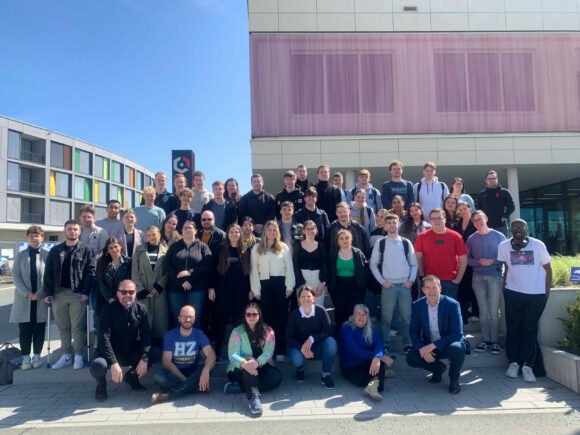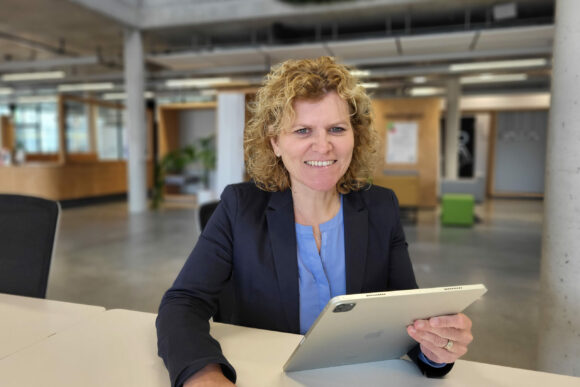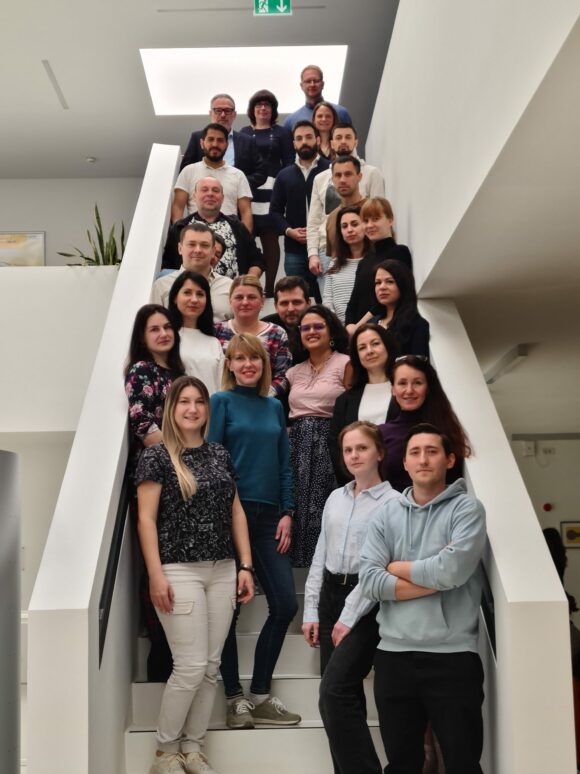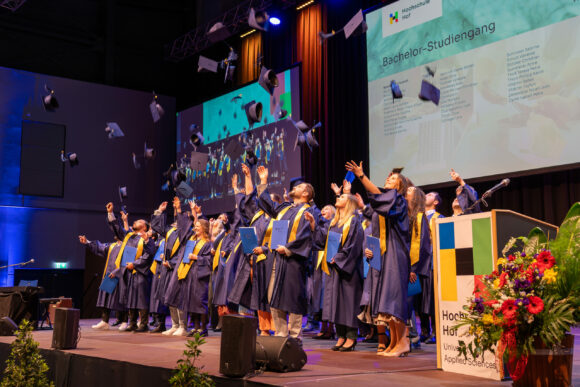The digitization of research and teaching is a major topic at the University of Applied Sciences in Hof. A new learning and teaching method is now taking a particularly remarkable approach. As part of the project “Sustainable Food Production in Integrated Aquaculture,” students first acquire knowledge in a virtual reality, which they then have to put into practice immediately. In the process, it is the students who give their teachers instructions on how to operate a real aquaculture operation – with all the dangers of failure and learning quickly from it.

Food production in integrated aquaculture” offer a particularly practice-oriented
Learning method; Image: Hof University of Applied Sciences;
“The fish in our experiment are not real – so no one has to worry about anything happening to them,” Dr. Harvey Harbach, who conducts research on sustainable food production at the Institute for Sustainable Aquatic Systems (inwa), states right away with animal welfare in mind. The researcher, who recently won a prize in the university competition for the “Year of Science 2023,” otherwise makes every effort to offer his students the most practical training possible. Together with Prof. Manuela Wimmer, he is now working on the next project, which will break new ground. Prof. Wimmer also works at inwa as a research group leader for “Sustainability and Project Management in Water Management”.
Virtual reading, practical understanding and immediate application
In the project “NaLeA – Sustainable Food Production in Integrated Aquaculture,” his students independently plan an aquaculture facility that is suitable for producing sustainable food.
“You have to read up on the knowledge for this yourself beforehand – through literature that we make available to them digitally. Afterwards, however, they immediately land in the cold water and have to show what they have already understood.”
Prof. Dr. Manuela Wimmer
The questions that arise for the students are enormously diverse and result from the great complexity of aquaculture: “Which plants can I use, which fish are suitable for this, how many nutrients and in which combination do I have to supply additionally? There are a lot of factors that have to work in harmony if the ecosystem is to function,” says Dr. Harvey Harbach.

Real and artificially generated problems
The fact that problems and errors occur in the process is expressly intended. The teachers always start by putting the students’ suggestions into practice – even if they are objectively wrong. The problems that sometimes inevitably arise from this must then be solved as quickly as possible. “In order to make the project as realistic as possible, we also create problems ourselves that would inevitably lead to the collapse of the system and thus put our participants under time pressure – for example, through a failure of the water treatment system,” explains the researcher. However, Dr. Harbach assures us that the system would not be allowed to collapse – in an emergency, the researchers would support us in finding a solution. This method, however, is ideally suited to perfectly simulate the requirements of a later career:
“Far better than in a classic lecture, the young people learn to work quickly and solution-oriented in a team and to coordinate their actions – so this learning by doing, which normally only comes into play in the profession, we deliberately draw into the training at the university already.”
Dr. Harvey Harbach
High level of digitization
The project is linked to a high digitization factor. Sensors are built into the aquaculture system, for example, which provide students with the necessary water values digitally on their smartphones or laptops. Plans and drawings are created on smartpads. This digital orientation is also noticeable in the final examination, which is not written but takes the form of an e-portfolio – a kind of digital record to which the teachers have access.
Register now!
The elective module “Food Production in Aquaculture” can now also be taken for the winter semester 2023/24 for the master’s program “Sustainable Water Management and Engineering”. (LINK)







